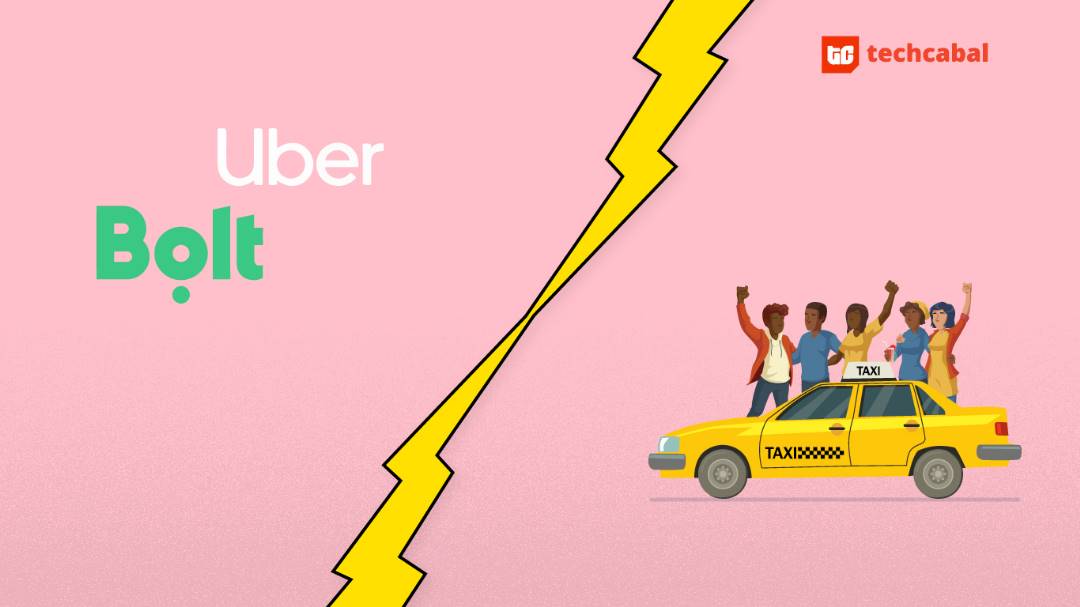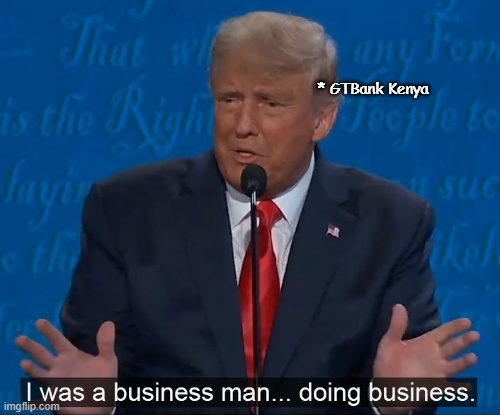- 👨🏿🚀TC Daily
- Posts
- sUber legit
sUber legit
Inside: Lending volume is sky-high in Kenya.


Happy pre-TGIF. ☀️
Nigerians, how were the queues at petrol stations in your area yesterday morning?
Mine was hectic. A two-day NUPENG strike, and it felt like the world paused. Trust commercial transport workers to take advantage of the situation, tripling prices for distances as short as two miles. I walked to the bistro where I worked yesterday.
Shout out to some petrol stations that discreetly sold fuel; though they added their gains, they made the heavier sacrifice in my books. 🙏
– Emmanuel
Shall we?

Ride-hailing
Uber drivers to get e-licences to operate in South Africa

After 13 years of limbo, South Africa has officially given Uber and Bolt drivers the green light. Starting September 12, drivers will operate with government-issued e-hailing licences, replacing the patchwork of permits that left the industry vulnerable to violence, turf wars, and constant legal uncertainty.
Between the lines: Cars will now display visible markers, drivers must pass criminal checks, and every vehicle will need a panic button.
This change follows from the National Land Transport Amendment Act, which President Cyril Ramaphosa signed in 2024. With the law now in effect, e-hailing is moving from the shadows into the core of South Africa's transport system.
State of play: South Africa is the first big African market to formally integrate e-hailing into its transport system. In Nigeria, drivers still operate in a grey zone, fighting battles with unions and regulators while safety issues mount. Kenya has taken a lighter approach, letting ride-hailing apps flourish with minimal interference. South Africa’s stricter play sets a precedent that other governments may soon copy.
The tension is in how well the rules can be enforced. Drivers and platforms that break them face fines up to R100,000 ($5,700) or even a jail term. Making sure thousands of drivers across provinces follow the standards will test regulators and the ride-hailing companies.
The catch for passengers is that they will gain more safety and trust with visible branding and stronger checks. But finally, one part of South Africa’s gig economy gains recognition after years of uncertainty.
eCommerce Without Borders: Get Paid Faster Worldwide

Whether you sell in Lagos or Nairobi, customers want local ways to pay. Let shoppers check out in their local currency, using cards, bank transfers, or mobile money. Set up seamless payments for your global online store with Fincra today.
Economy
Kenya’s lending to the private sector picks up in July

Kenyan banks are finally loosening their purse strings. After months of roforofo fight with the Central Bank (CBK) urging lenders to cut rates to stimulate borrowing, private sector credit jumped 3.3% in July. This marks Kenya's fastest lending growth this year, representing a clear swing from the credit squeeze that characterised the start of 2025. The push comes after the regulator has implemented seven rate cuts in 12 months.
State of play: The CBK has eased benchmark rates by 3.25% since August 2024. Governor Kamau Thugge admits the effect took longer than hoped, but the recovery is now showing. The weighted lending average in Kenya, the average rate commercial lenders issue loans, also declined recently. In July, it also dropped by 0.04% to 15.24%. This means that loans to the private sector are becoming cheaper, and it is fuelling the rate at which borrowers are queuing up to grab their payday.
Winners and losers: Banks have been trooping to offer loans to private borrowers, with some banks cutting their interests in government securities in favour of credit. KCB holds the biggest loan book at over KES 1 trillion ($7.7 billion). Diamond Trust Bank is growing fastest, up 8%, while NCBA is shrinking, down 7%. Loan book expansion sounds good for lenders, but the shadow of defaults hangs heavy. Kenya’s pile of bad loans is among the largest on the continent.
Why does any of this matter? Easier credit means more money in circulation, which is what the central bank wants. The risk is whether the banking system can handle it. If borrowers repay their loans, growth takes off. But if defaults continue to swell, banks will take the hit, and gains disappear.
Shop anywhere with Paga's physical prepaid card

Own every checkout with Paga’s Physical Prepaid Card. Suitable for all your security and speed needs. Just fund, shop, and pay anywhere with confidence. Get yours today.
Telecoms
Airtel Kenya moves into fibre🔌

In more Kenyan news, Airtel Kenya is setting its sights on the fibre market. The telecom operator is preparing to roll out home broadband, taking on big players like Safaricom, Zuku, and Faiba.
Why fibre and why now? Kenya’s demand for high-speed internet is exploding. Kenya’s fixed broadband subscriptions jumped from 1.3 million in 2024 to 1.86 million by March 2025. Airtel added 3 million mobile users in Q1 2025, lifting its base to 32.2% of the mobile money market.
Airtel Money, the company’s mobile money arm, now holds a 9% share of mobile money in the country. That subscriber and payment growth is the asset the telecom operator wants to build on.
The competition is tight. Airtel has no presence in fixed fibre, while Safaricom leads the sector with a 36.5% market share. Faiba and Zuku are defending their 22.5% and 14.4% turf. Airtel will have to leverage its scale and growing brand loyalty to carve out space in an already saturated market.
Zoom out: Airtel’s arrival means more choice for consumers and tougher battles for market share. Safaricom, Zuku, and Faiba won’t give up ground easily, but Airtel’s scale and subscriber momentum could shake things up.
Never miss an update from Paystack

Subscribe to Paystack for a curated dose of product updates, insights, event invites and more. Subscribe here →
Banking
GTBank Kenya rides on Posta’s network to grow retail reach

GTB Kenya, a subsidiary of Nigerian tier-1 bank, has teamed up with Posta Kenya, a state-owned postal service, to launch 46 agency banking outlets under the brand GTExpress. Instead of building new branches to add to its current 12, the lender is using the postal service’s network to open 46 agency banking outlets.
How will it work? Customers can walk into a Posta branch to open an account, deposit or withdraw cash, and pay bills at reasonable rates.
For Posta, this is survival. With Kenya’s postal service revenue expected to show an annual growth rate of -1.56%, Posta wants to survive by any means necessary (change). In 2021, the postal service teamed up with Taz delivery system to carry out last-mile delivery across the country. A few months later, it received a $503,000 loan from the National Treasury to acquire delivery trucks. Yet it seemed that wasn't enough money, as later in June 2025, it planned to sell a stake in its courier division for $19 million.
Kenya’s top banks have already proven the model. Equity Bank’s 60,000 agents move over $18 million in transactions annually, while for the likes of KCB, its 15,000 agents give its retail operations heft. GTBank Kenya’s numbers pale in comparison. But the challenger bank is banking on reach, riding on Posta’s access to 47 counties in Kenya.
GTBank plans to add another 54 outlets before the year ends. Its bet is on coverage rather than concentration. If the bet works, it’s a win-win for both parties. Posta gets to stay alive, and GTBank gets a wider backdoor into Kenya’s retail market.
CRYPTO TRACKER
The World Wide Web3
Source:

Coin Name | Current Value | Day | Month |
|---|---|---|---|
| $114,116 | + 2.32% | - 3.93% | |
| $4,407 | + 2.33% | + 2.46% | |
| $0.02439 | - 23.78% | - 23.78% | |
| $223.10 | + 2.20% | + 27.17% |
* Data as of 06.25 AM WAT, September 11, 2025.
How did you find today's edition of #TCDaily? |




